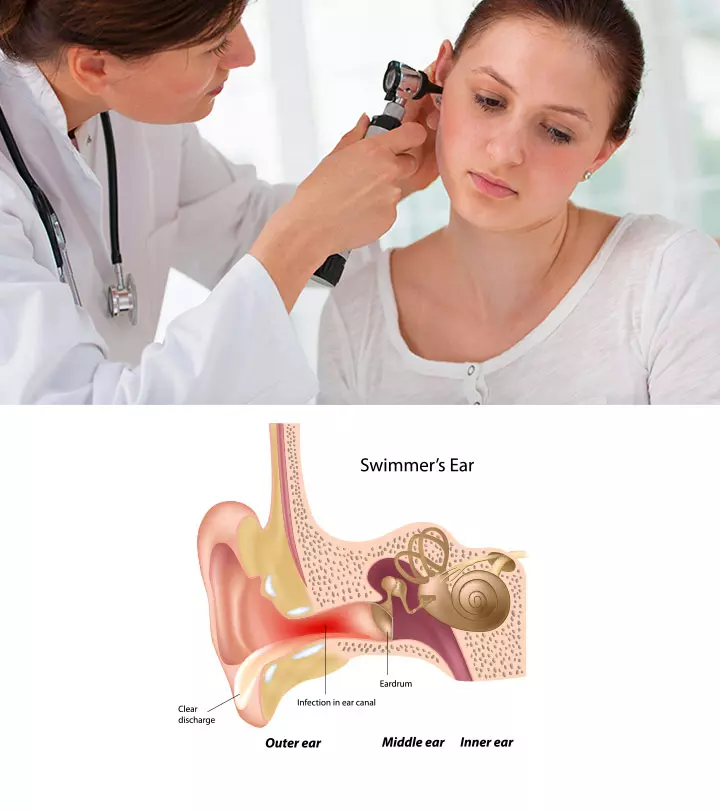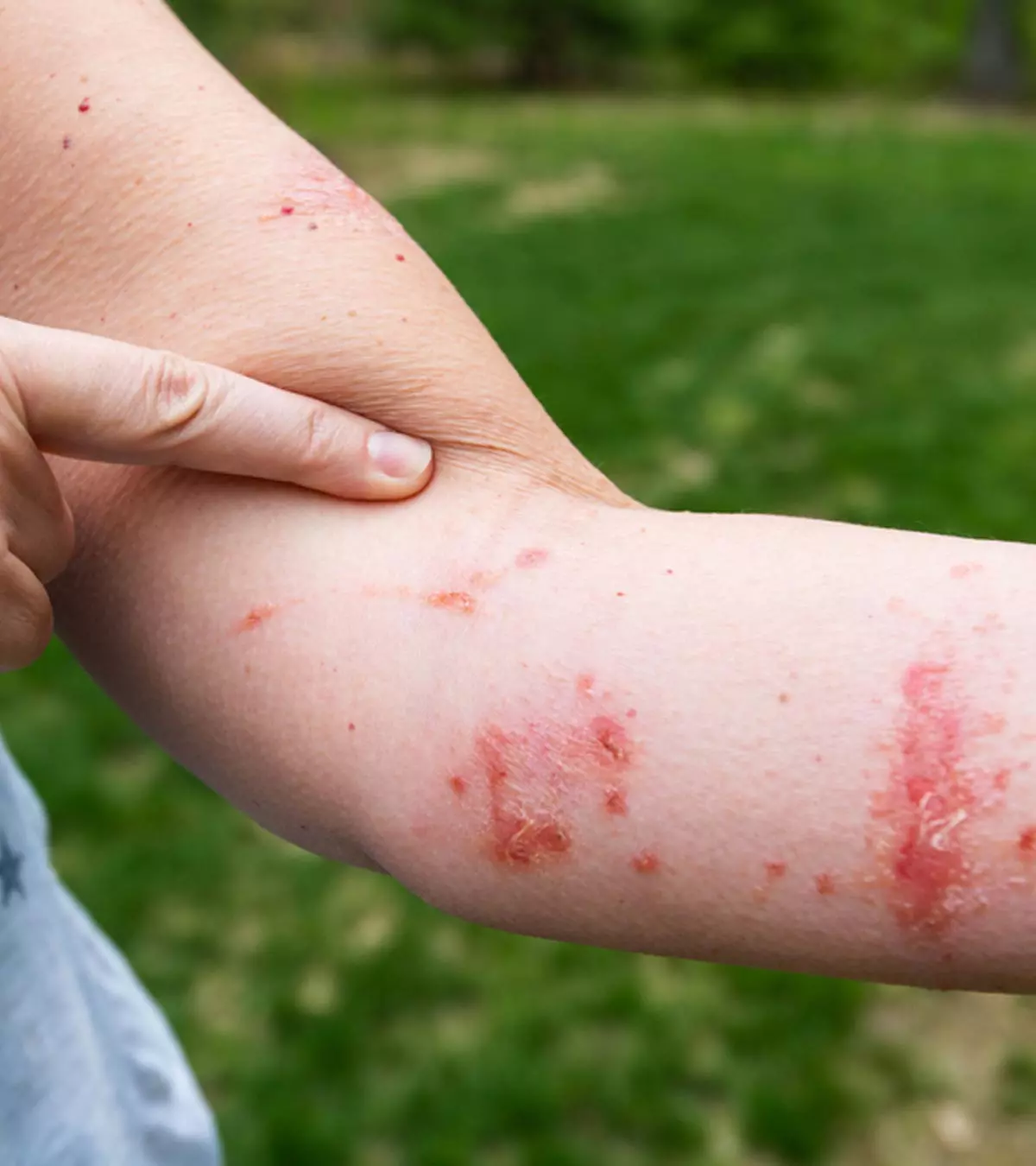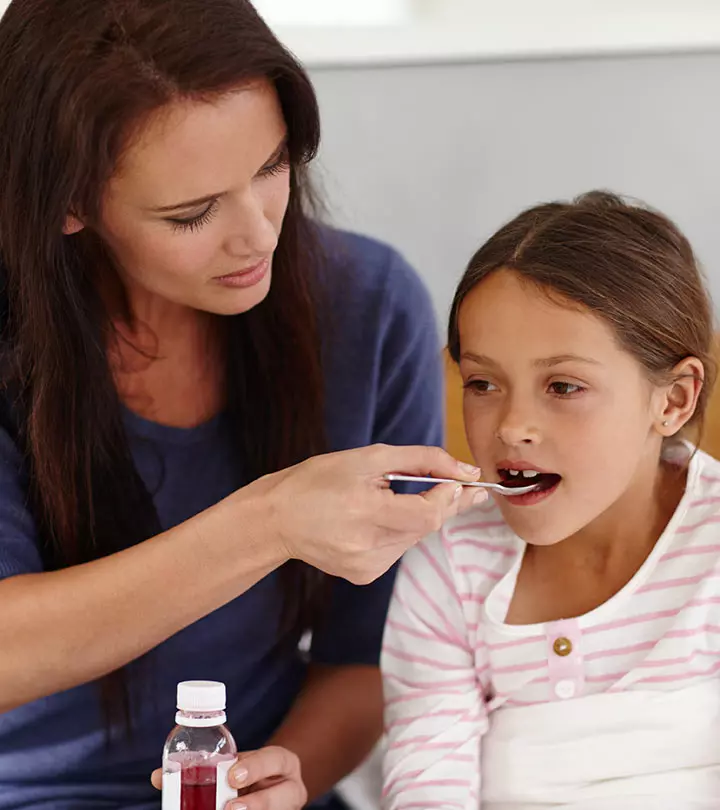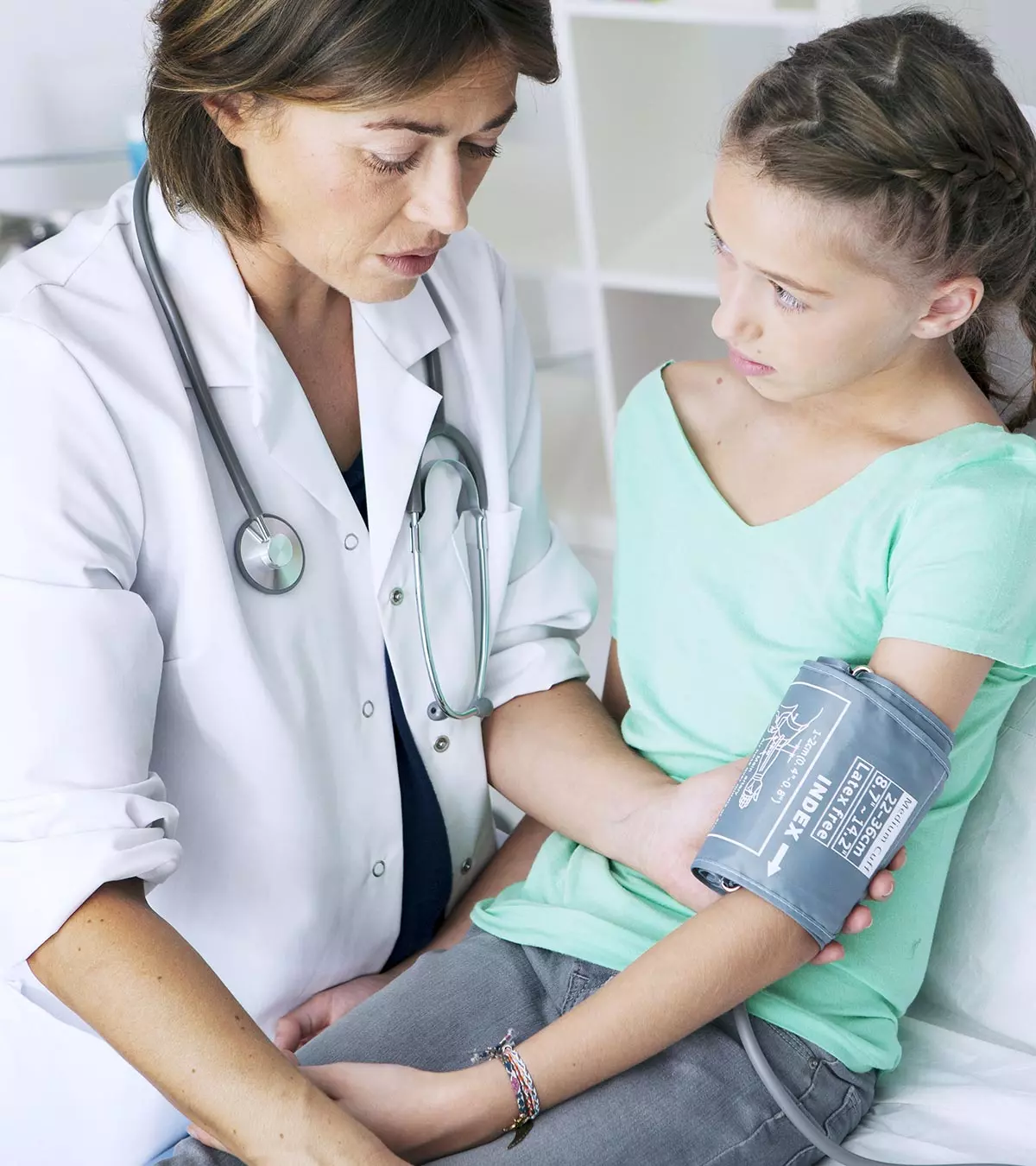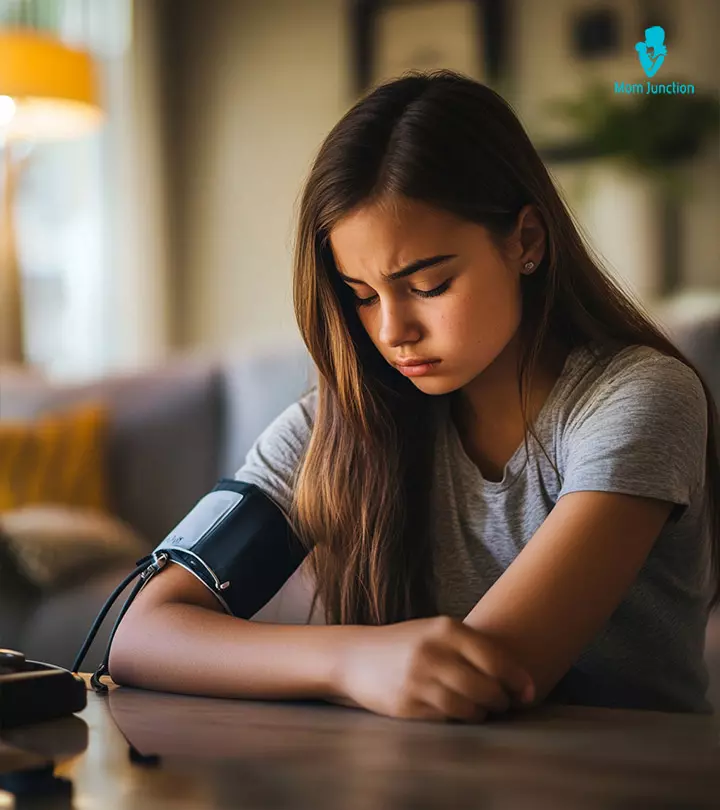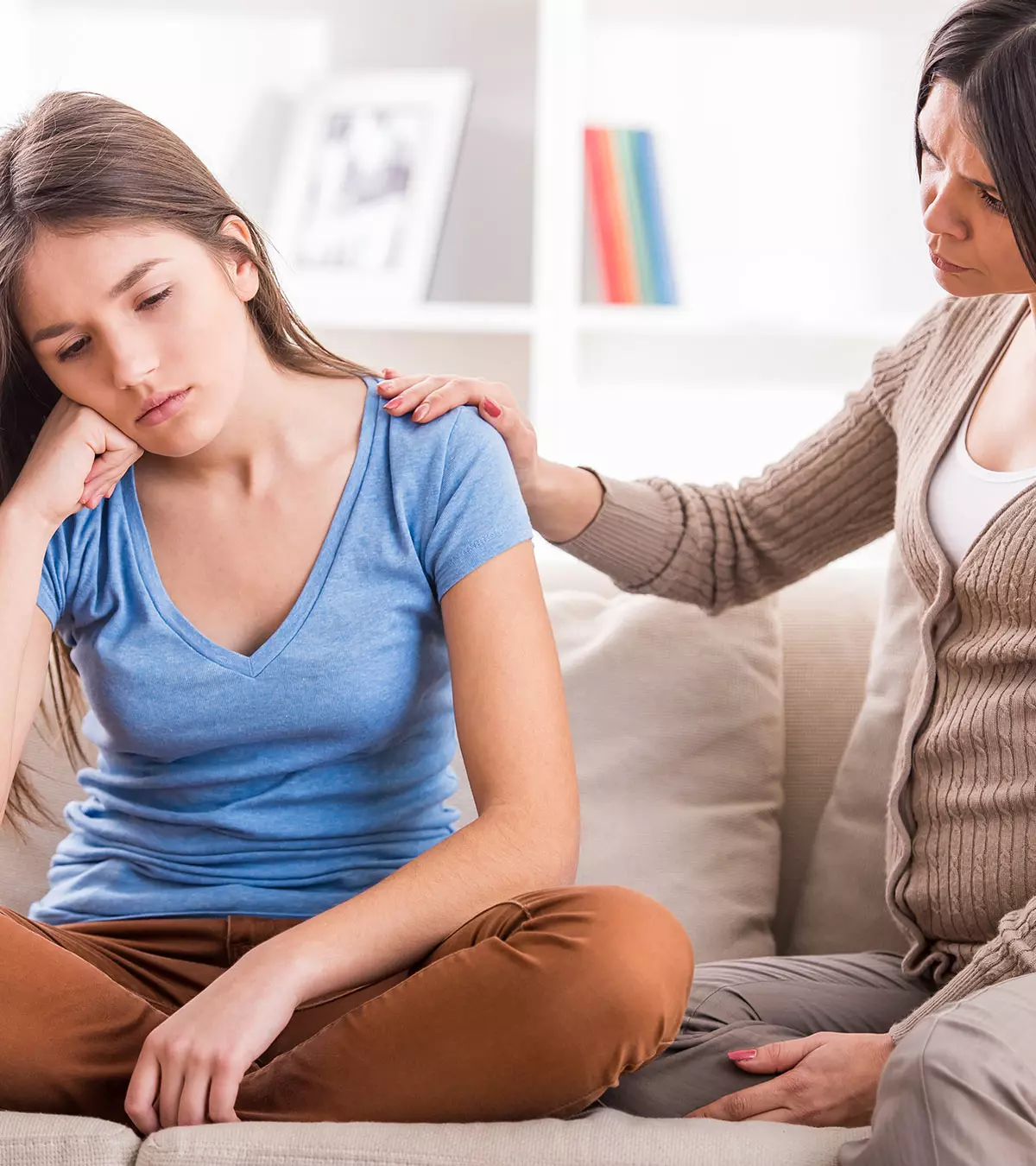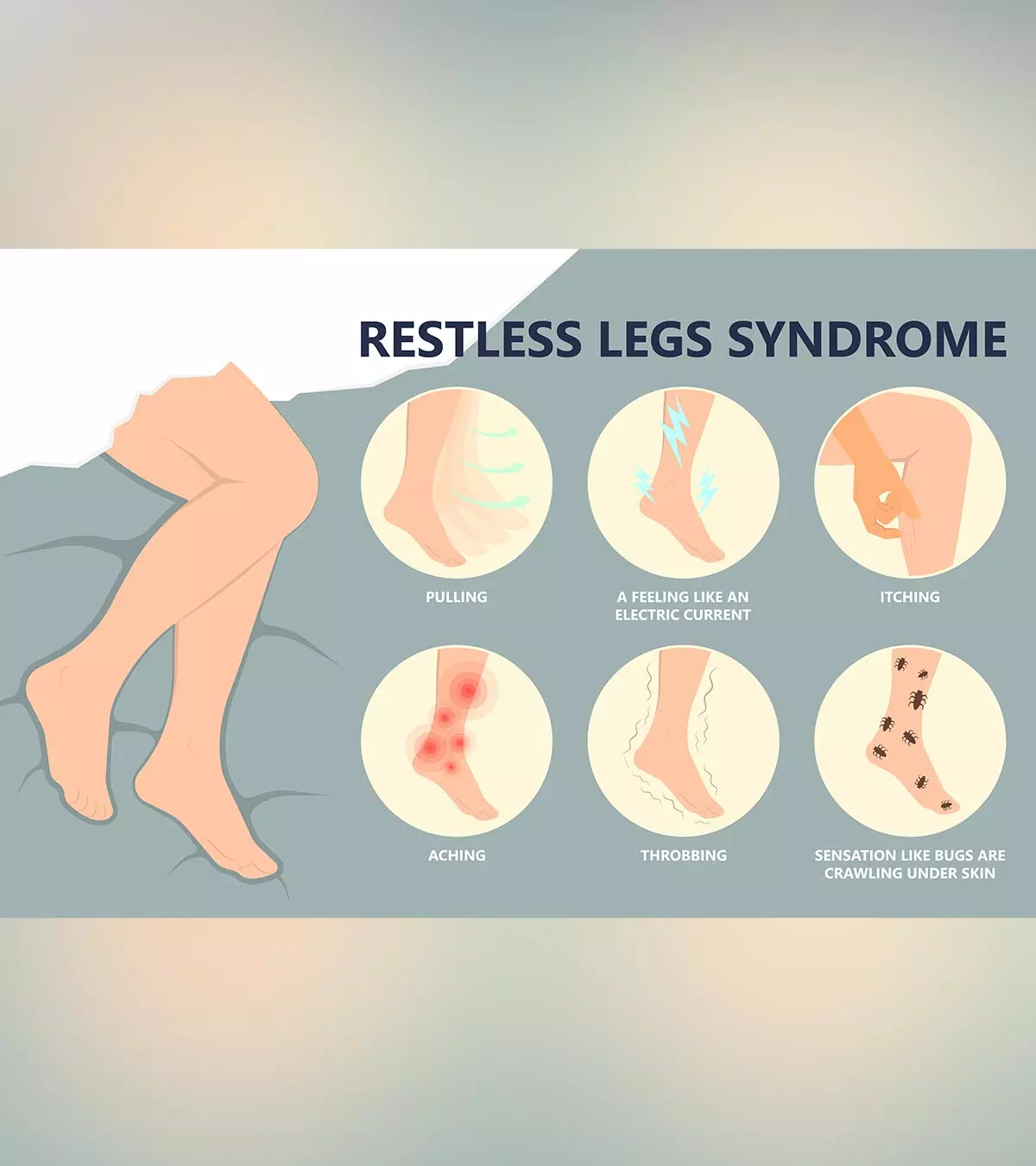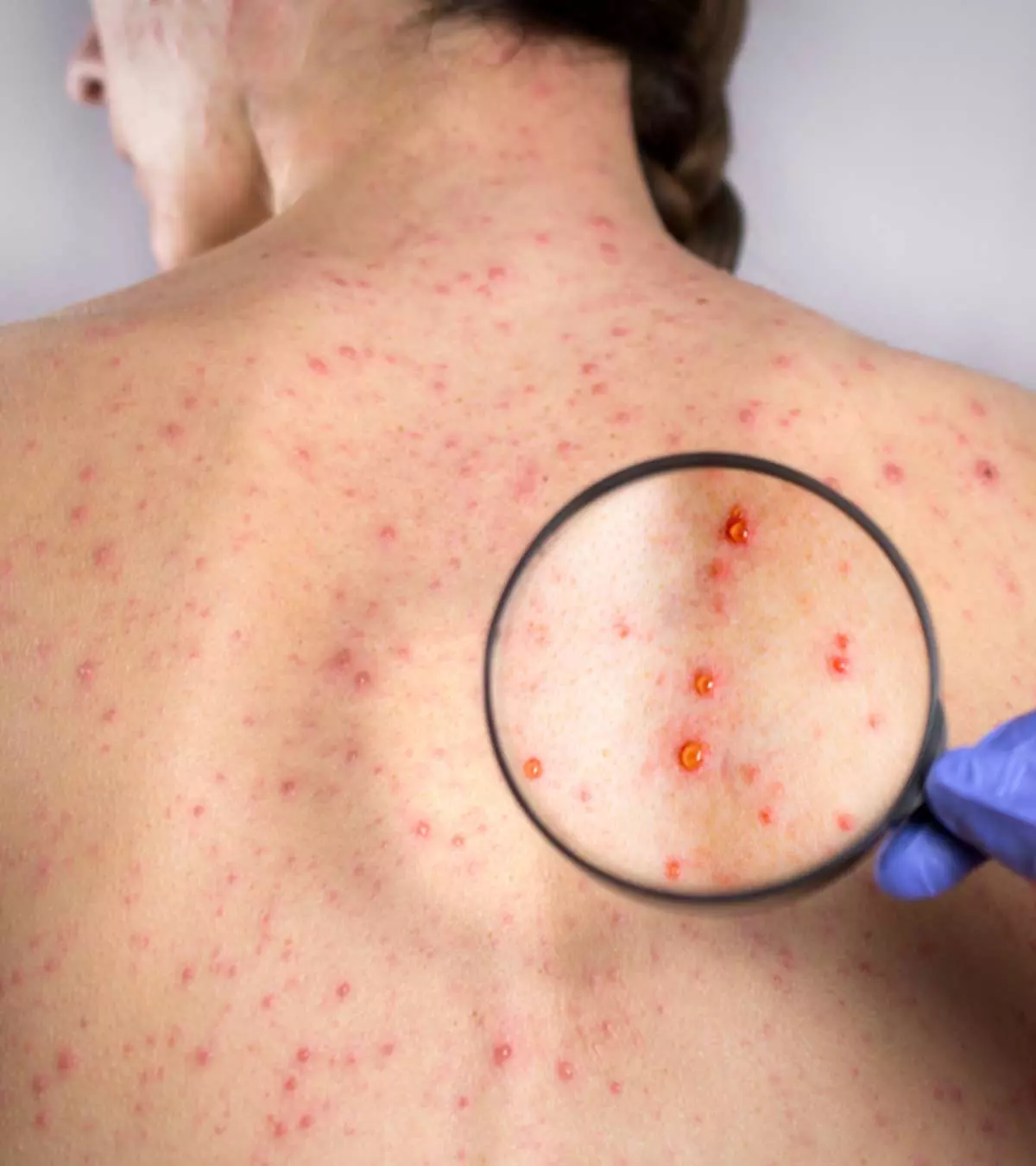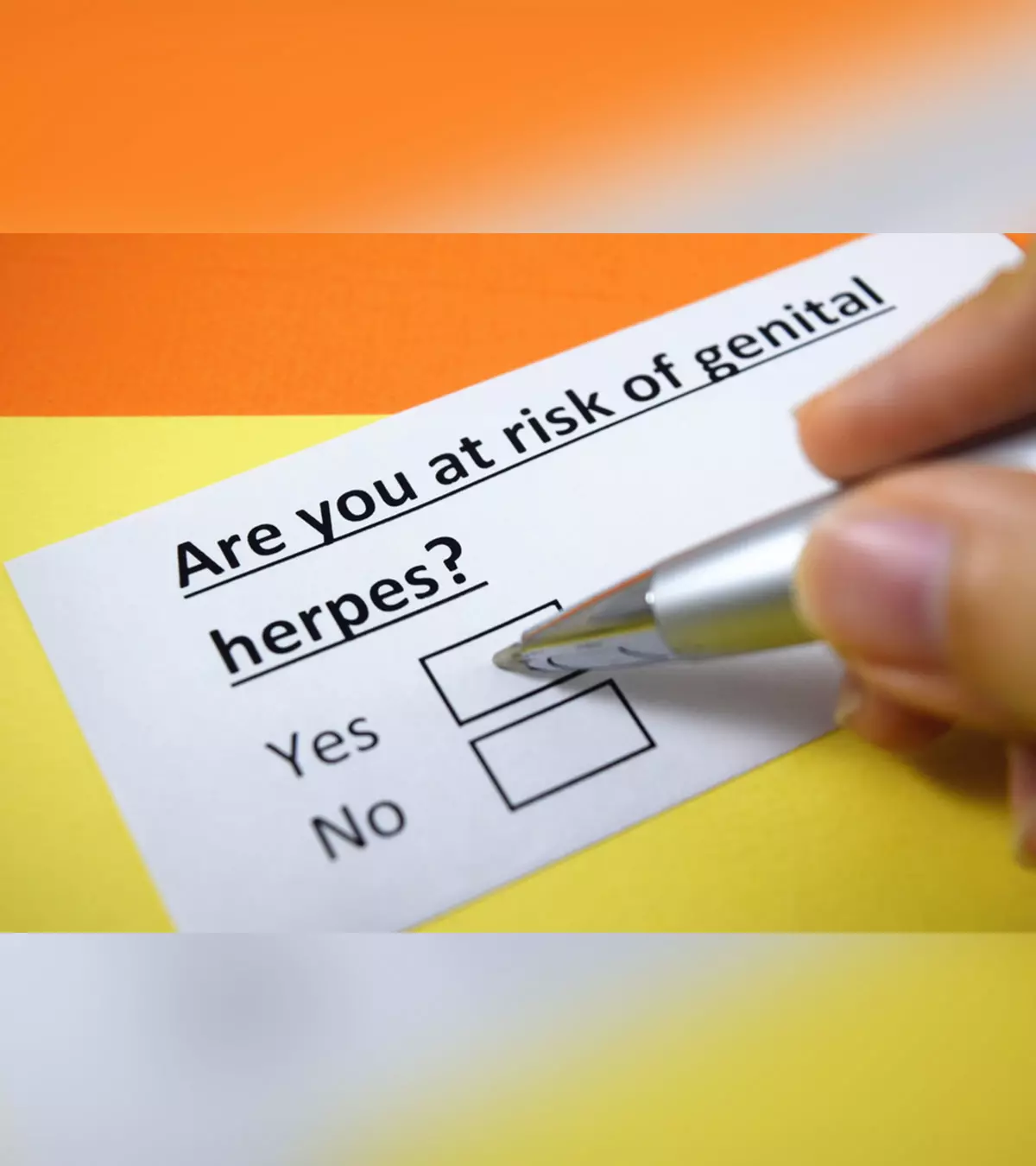
Genital herpes is a viral infection caused by the herpes simplex virus (HSV). Although it is more frequent in adults, it is also possible to find cases of genital herpes in children. During an outbreak, the infection can produce painful and itchy sores in the genital area.
After the initial infection, the herpes virus remains dormant in the nerve cells and reactivates in favorable conditions. Genital herpes does not have a complete cure, but medication may assist in controlling the severity of the infection.
Understanding the prevalence and implications of this infection can help in early recognition and management. Read on to know the causes, symptoms, diagnosis, treatment, and prevention of genital herpes in children.
Key Pointers
- Some symptoms of genital herpes in children are pain or itching in the genital region, fever, headache, and muscle aches.
- It could spread by touching the genitals after touching a herpes sore.
- Genital herpes can be diagnosed with blood tests if sores aren’t present and controlled with antiviral pills or ointments.
- Inculcating good hygiene habits in children could prevent them from contracting herpes.
Symptoms Of Genital Herpes
Flu-like symptoms are common during a herpes outbreak. You may seek medical care in the initial days since antivirals may reduce the severity of the infection. The following symptoms and signs are usually seen (1).
- Pain and itching in the genital area
- Headache
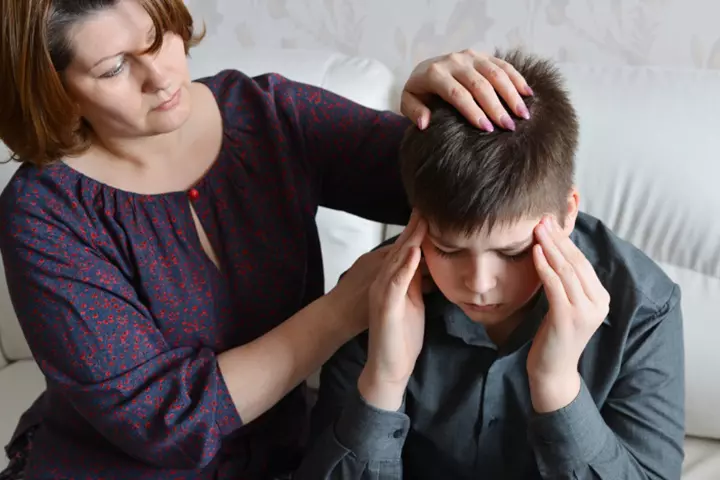
Image: Shutterstock
- Fever
- Bumps or blisters in the genital area
- Muscle aches
- Swelling and tenderness of the glands in the groin
- Burning or painful sensation during urination
- Abnormal discharge from the penis or vagina
The first infection may occur two to fourteen days after contracting the herpes virus. Herpes bumps or blisters in the genital area may break and form sores that may last about three weeks.
After the initial infection, the herpes virus may stay dormant and reactivate later. The second infection may cause sores that do not last very long. The following factors may cause the second outbreak of sores in the genital and anal area in many children (2).
- Stress
- Illnesses
- Sun exposure
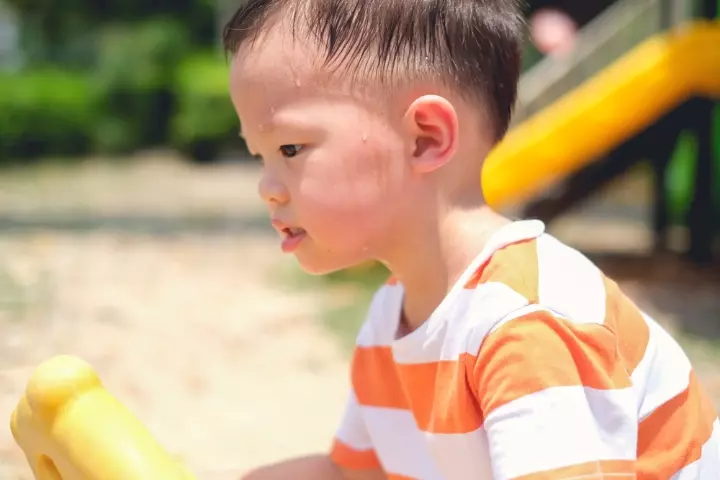
Image: Shutterstock
- Fatigue
- Girls may have outbreaks during periods (menstruation)
The initial outbreak can be severe with more sores. However, subsequent outbreaks tend to become less severe over time.
Children with genital herpes may also feel anxious, embarrased, or withdraw socially due to the stigma around the infection. Managing their emotional concerns is essential for overall care.
Causes Of Genital Herpes In Children

Image: Shutterstock
The following viruses are responsible for genital herpes in children (3).
- HSV-1 (herpes simplex virus type 1)
- HSV-2 (herpes simplex virus type 2)
HSV-2 is the most common cause of genital herpes, whereas HSV-1 typically causes cold sores in children, often appearing around the mouth.
The Spread Of Genital Herpes
Children and adolescents may develop genital herpes if they touch cold sores on the mouth and touch their genitals without washing their hands. Teens are more likely to develop genital herpes from intimate relationships.
Herpes usually spreads in the following ways.
- Touching the genitals with unwashed hands after touching a herpes sore
- Having any form of unprotected sex with an infected person with or without genital or oral herpes sores can result in HSV-2 infection
Genital herpes can spread even if the infected person has not yet developed herpes sores.
The presence of infection in young children without any known history of contact with cold sores might be a sign of sexual abuse. A pediatrician or a pediatric psychologist may ask questions to identify any cases of sexual abuse.
Diagnosis Of Genital Herpes In Children
The following tests could help diagnose genital herpes in children (4).
- Analysis of fluid from the sores during an outbreak
- Blood tests if no sores are present
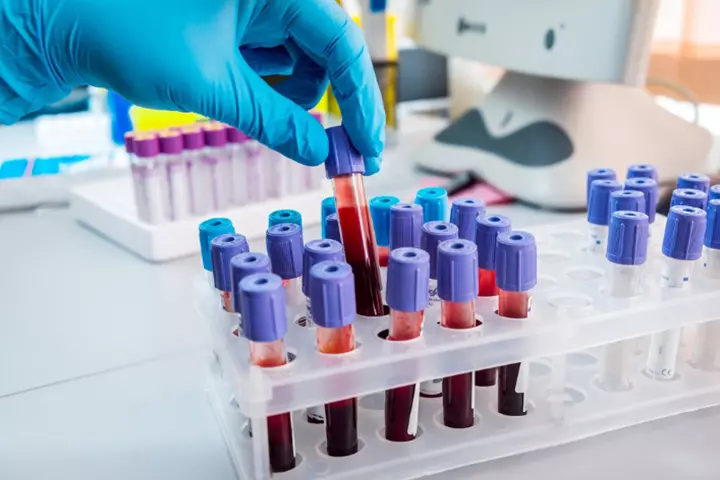
Image: Shutterstock
Doctors may ask a child if they have been in contact with an infected child or adult. A detailed medical history can give vital insights into possible exposure and when symptoms began, helping with accurate diagnosis and treatment. However, in many cases, the source of infection may not be identifiable since the sores may appear months or years after contracting the virus (5).
Treatment Of Genital Herpes In Children
There is no specific cure or vaccine for genital herpes. Doctors may prescribe medications to reduce the frequency and severity of outbreaks. Medications may also reduce the risk of spreading herpes to others.
Antiviral pills or ointments are usually prescribed during an outbreak of sores. Daily suppressive therapy with medications is given to prevent an outbreak. Children with repeated or severe outbreaks may be tested for immunodeficiency diseases, such as HIV infection. Antivirals are prescribed based on the test results. In addition to medications, psychological support can help children express their concerns and learn coping strategies to manage the emotional challenges of living with genital herpes.
 Things to know
Things to knowPrevention Of Genital Herpes In Children
Teaching proper hand hygiene measures to children could reduce the risk of spreading the herpes virus. You may ask your child not to touch the genital area with unwashed hands after touching cold sores. Children should also be encouraged to have healthy personal hygiene habits.
It is ideal that teens and older children undergo sex education and learn more about sexual wellness to reduce the risk of genital herpes and other STDs. Antiviral medications may reduce the severity of the outbreak and spread of genital herpes in cases where the child develops sores.
 Point to consider
Point to considerGenital herpes in a young child may raise the suspicion of sexual abuse. However, sexual transmission in children over five years of age is usually reported when they only present with genital lesions and only have the herpes simplex virus type 2 (6). Nevertheless, doctors may include a multidisciplinary team to exclude the possibility of sexual abuse in some cases.
 Things to know
Things to knowFrequently Asked Questions
1. When genital herpes is most contagious in kids?
Regardless of gender or age, genital herpes is most contagious for three days prior to the appearance of the rash. It coincides with itching, burning, or pain in the area where the outbreak occurs (7).
2. What is the percent chance of getting herpes?
The global infection rate of herpes caused by HSV-1 is around 67% in people under 50 years, while the global transmission rate of herpes caused due to HSV-2 is around 13% in individuals aged 15 to 49 years (8).
3. Can herpes go away in kids?
Most herpes infections resolve themselves in children; however, some may develop painful blisters that recur over time (8).
4. What are the stages of herpes?
The primary stage of herpes infection begins two to eight days after being infected and is characterized by the appearance of small, painful blisters. It is followed by the latent stage, where the virus travels from the skin into the spinal nerves, and no blisters or other symptoms are observed. At the last stage, the shedding stage, the virus spreads through nerves inside the body (9):
5. Can herpes cause other health problems in kids?
At an advanced stage, HSV-1 infection can cause health complications, such as keratitis (eye infection) and encephalitis (brain infection), and HSV-2 infection causes meningoencephalitis (brain infection) and disseminated infection (localized infection) (8).
Although genital herpes is more commonly associated with adults, it can also affect children and teenagers. Consult a pediatrician if you notice signs of genital herpes in children that include discomfort and itching in the genital area, followed by fever, headache, swelling, and burning sensation in the groin, among others. Because there is no treatment for this condition, your doctor may choose to give your kid antiviral medicines to help reduce the frequency and severity of outbreaks. Appropriate personal hygiene and educating teenagers on STDs could also help in preventing the recurrence of the infection.
Infographic: What You Should Know About Herpes Infections In Children?
Children can get infected by herpes simplex type 1 and 2 viruses from infected adults who have close contact with them. Herpes virus can cause uncomplicated mucosal infections to central nervous system infections. However, with adequate precautions, the spread can be prevented. Check out some facts about herpes infection in children that may help you seek the right treatment on time. Illustration: Momjunction Design Team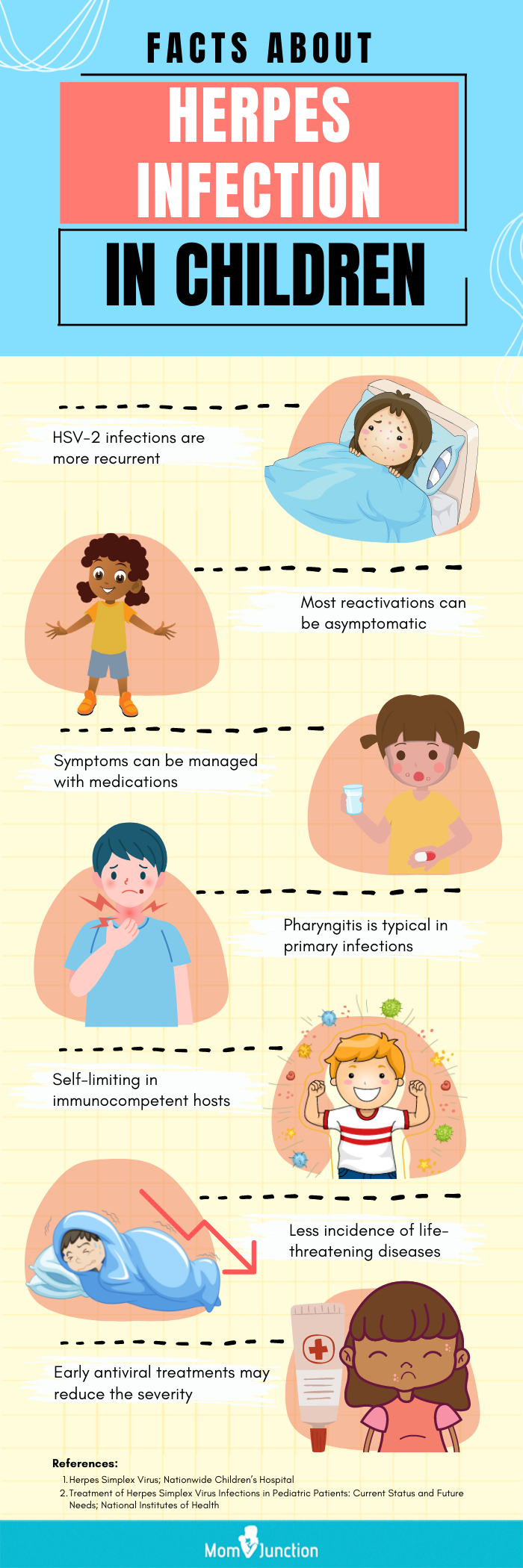
References
1. Genital Herpes; Children’s Hospital Of Philadelphia
2. Genital Herpes; Johns Hopkins Medicine
3. Genital Herpes; C.S. Mott Children’s Hospital; Michigan Medicine
4. Genital Herpes; The American Academy Of Family Physicians
5. Genital herpes: Overview: Overview; InformedHealth; US National Library Of Medicine
6. Evidence for sexual transmission of genital herpes in children; US National Library Of Medicine
7. How Much Do You Know About Herpes?; Cedars-Sinai
8. Herpes simplex virus; World Health Organization
9. Herpes; Family Doctor; American Academy Of Pediatrics
9. WHO Guideline for the Treatment of Genital Herpes Simplex Virus; WHO
9. Genital Herpes; Connecticut Children’s Hospital
Community Experiences
Join the conversation and become a part of our nurturing community! Share your stories, experiences, and insights to connect with fellow parents.
Read full bio of Dr. Richard Mario Lurshay
Read full bio of Dr Bisny T. Joseph
Read full bio of Dr. Ritika Shah
Read full bio of Shinta Liz Sunny









